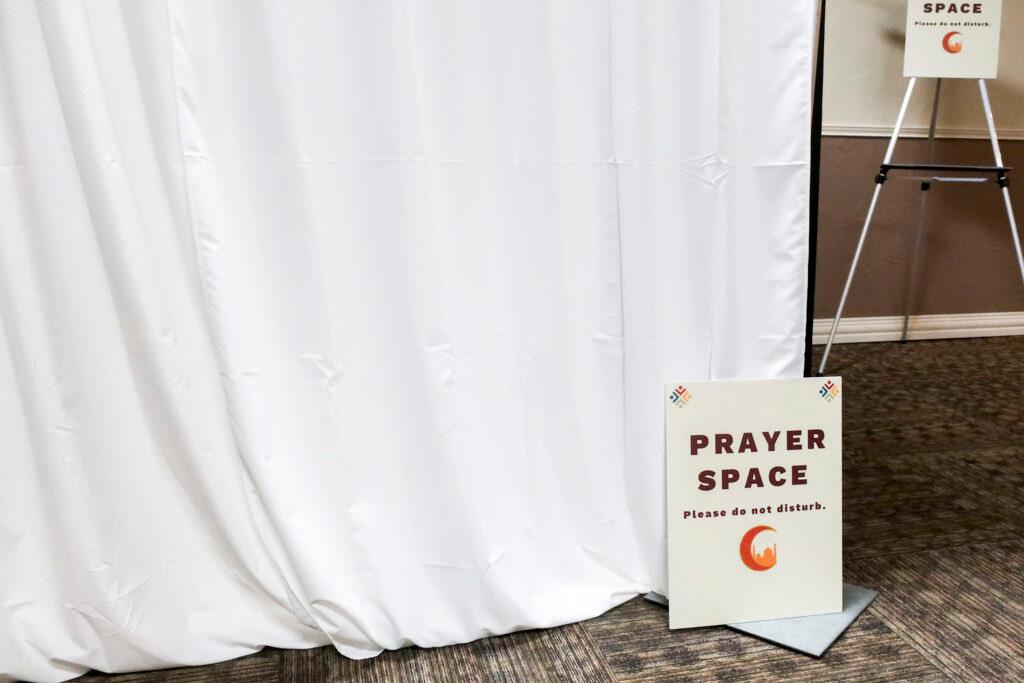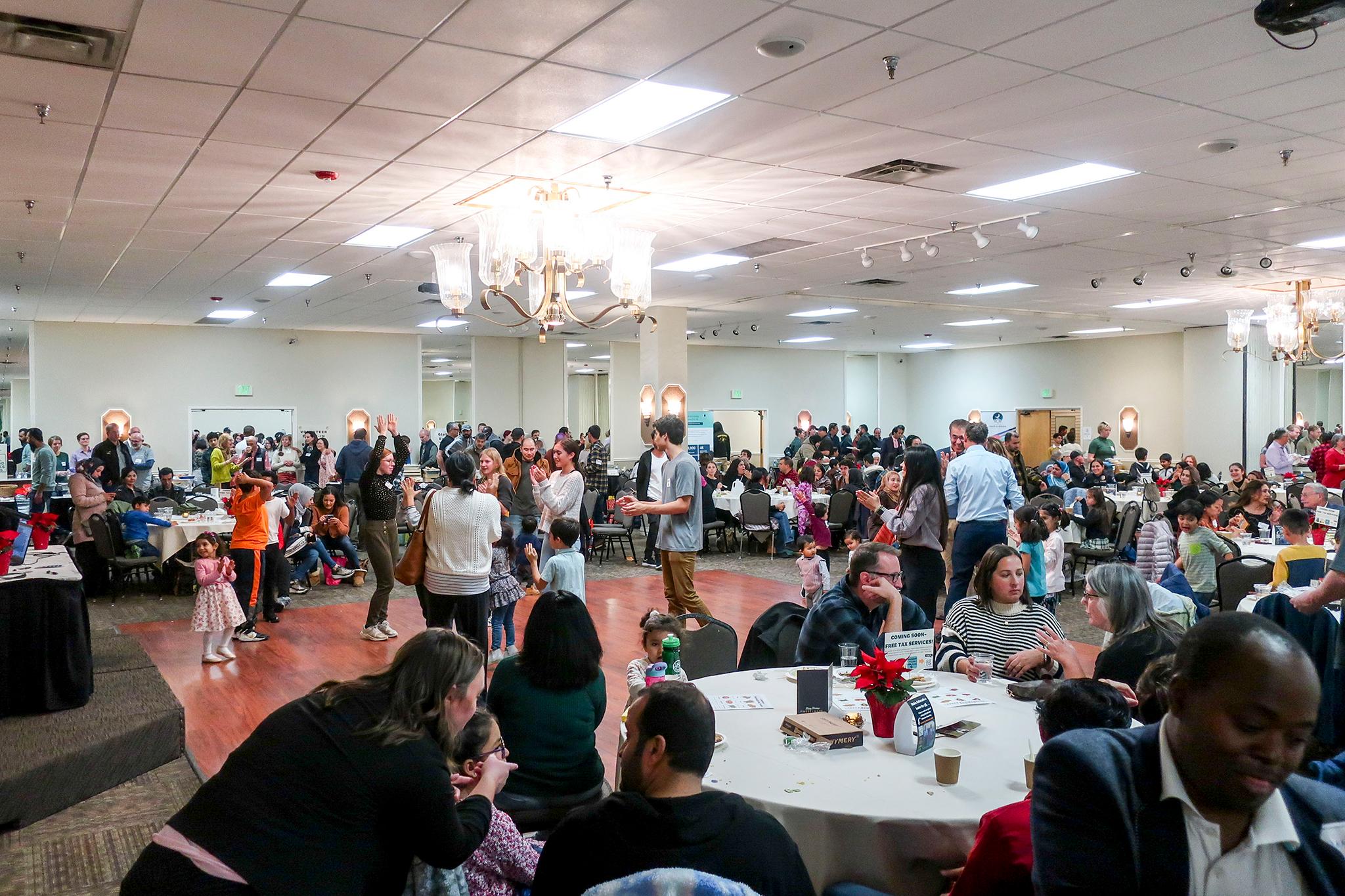
Mohammad Saighani remembers the fall and winter of last year as one of the most chaotic times of his life.
The 30-year-old and his brother, a government worker for Afghanistan’s now-fallen Ministry of Economy and Public Health, were among the final wave of people to evacuate the country during the United States’ military withdrawal.
When violence broke out at the airport in Kabul, Saighani suffered a stab wound on his right leg. That didn’t stop him from earning asylum status and flying out on a military plane.
He spent a few weeks living in Germany, then Washington D.C., then Wisconsin before finally resettling in Aurora in November 2021.
Now, a year later, he was dressed up in a clean suit, hugging and greeting friends at his first Thanksgiving meal.
“Hello, and thank you,” he said while holding a plate in line at a buffet, taking scoops of rice and Afghan naan.
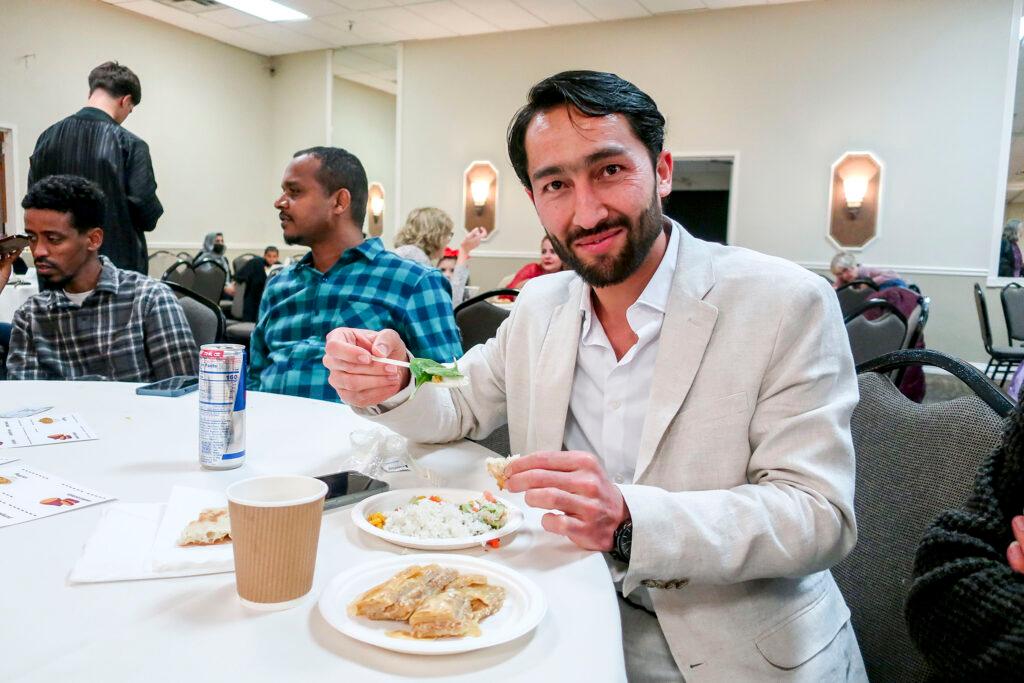
When he reached the dessert table, he had a choice between pumpkin pie and baklava. He took the latter.
“I look forward to trying this all at some point," he said.
Saighani was one of several hundred people who dined at this year’s Refugee First Thanksgiving, an annual multicultural feast organized by local resettlement aid groups. It was the first in-person version of the meal held since 2019, due to the pandemic.
For the past several years, volunteers have delivered at-home meal kits to help welcome refugees around the holiday. The event itself is in its 17th year.
It started with just a few dozen participants and has grown into hundreds, said Maria Farrier, a development manager at the Aurora-based African Community Center, the main refugee services organization coordinating the meal.
“It’s always had the same focus of showing gratitude to our refugees and volunteers in the community and giving everyone a chance to interact,” Farrier said.
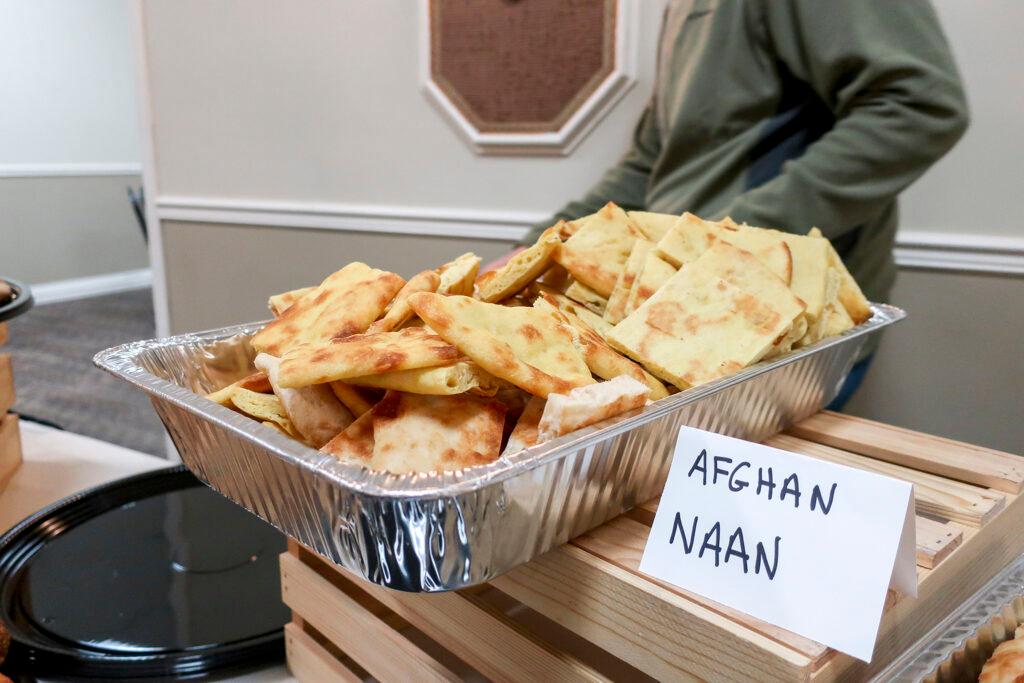
The venue typically changes year-to-year, based on where the largest percentage of community members are living, Farrier said. Past venues include church basements and school gymnasiums.
A focus of this year’s event was ensuring that all attendees — regardless of their religious dietary restrictions — could participate. Organizers secured 40 halal turkeys and requested that all donors follow similar preparation guidelines.
“That was really important for this year’s event, just knowing that a large percent of our families are Muslim from Afghanistan,” Farrier said.
The country provided the largest influx of new arrivals to the Denver area over the past year — roughly 2,000 people, Farrier said. The state has also seen an uptick in refugee numbers due to the war in Ukraine.
“We have seen a ton of growth,” Farrier said. “This past year, we resettled the same number of refugee families as the previous four years combined.”
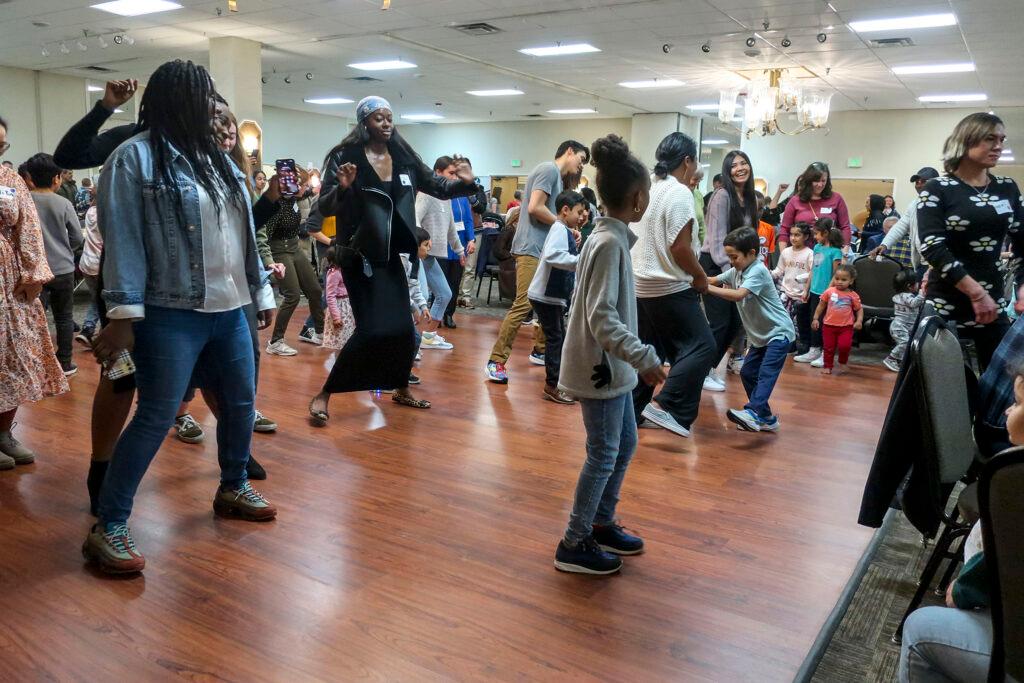
The Thanksgiving meal was structured loosely, with dozens of dining tables set up inside a banquet hall. Seating was unassigned to encourage new connections. Attendees did the Cha-Cha Slide on the dance floor and took pictures in a red carpet-style photo booth.
But the main focus was the food. Volunteers laid out buffets with dozens of different kinds of dishes for attendees.
The options included traditional American meal options like turkey, mashed potatoes and gravy. Local chefs in the refugee community also contributed their own dishes, from Ethiopian injera to Burmese tea leaf salad.
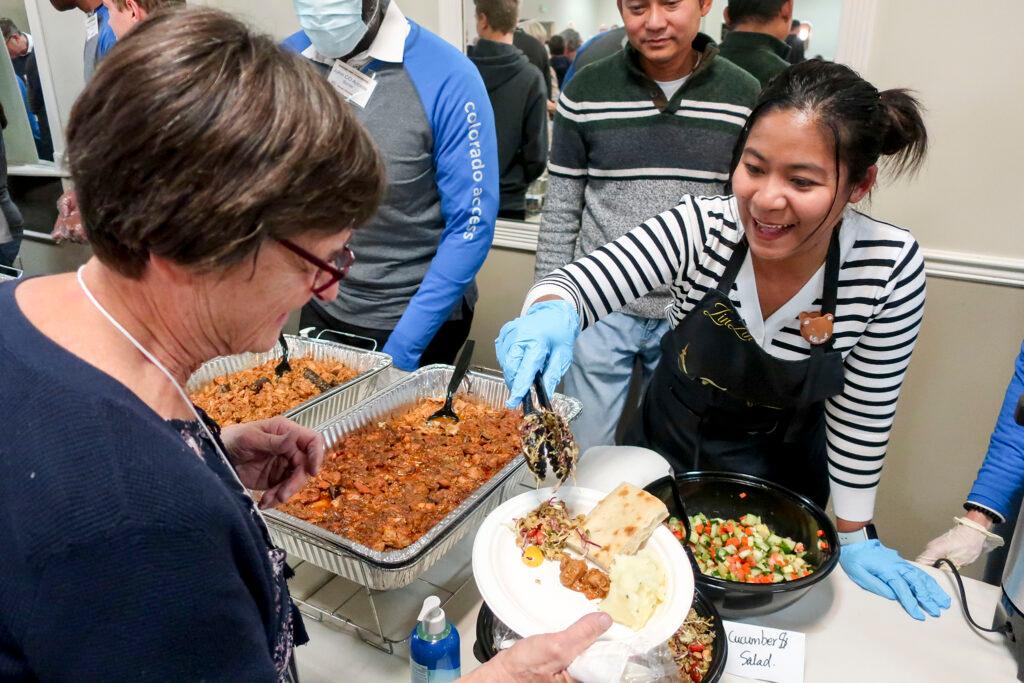
Chefs shared their own stories as they dished out scoops of their creations. Zin Zin Htun, a Burmese refugee who resettled in Colorado in 2015, filled up mugs of Burmese tea for attendees.
As she handed the hot beverage, a combination of black tea with milk and sugar, to one woman, Htun asked where she was from.
“Ukraine,” the woman said, smiling.
“Welcome,” Htun said, smiling back.
Htun fled Burma due to religious persecution, she said. After resettling in the U.S., she found success in cooking. A few years later, she started her own catering businesses out of a local bazaar. She now hopes to open her own restaurant.
“I want us all to feel united,” Htun said. “And I think one way we can show that is by sharing our cuisine. That makes people calm and happy.”
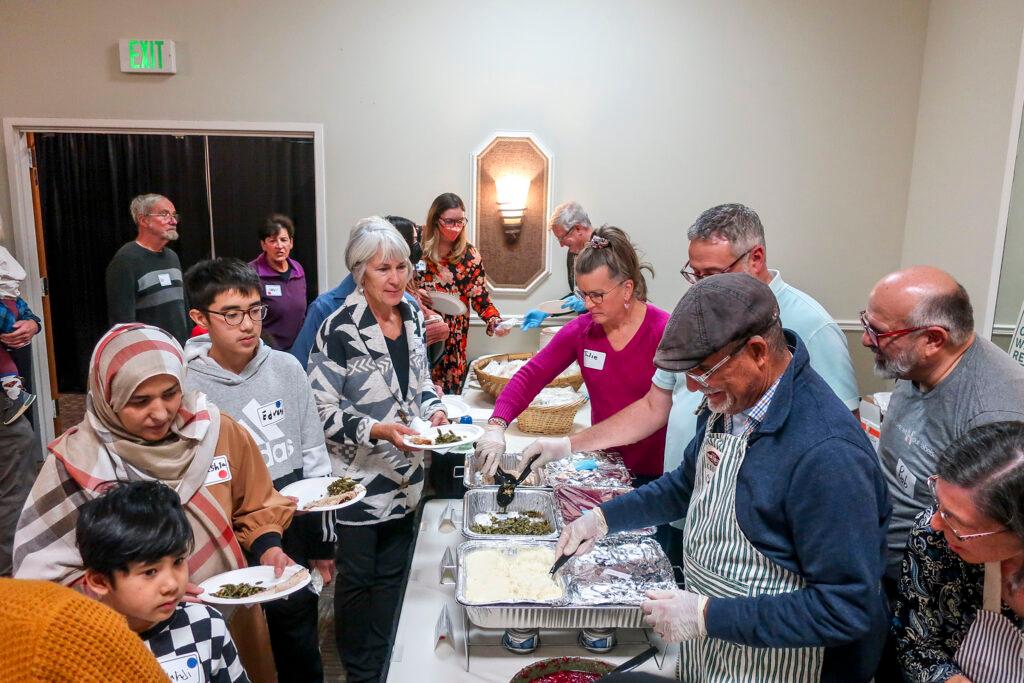
The feast lasted for several hours, with multiple waves of diners coming and going throughout the evening. Local government resettlement offices, employment agencies and food banks set up booths and handed out information to attendees.
After he got his food, Saighani found a spot to eat with several people from an English language class he attends at Emily Griffith Technical College.
“Can we pose for a picture?” Saighani asked the group.
“Okay, act natural,” one of the other students said as they posed together at the table.
Since moving to the U.S. last year, Saighani has learned English, gotten a job at Denver International Airport, and started working with a career counselor to lay out ideas for a new life. He hopes to one day help the rest of his family resettle in the U.S.
The Thanksgiving meal felt like a break from the stress of finding a new normal in Colorado, he said. He wished his brother would have come, but he was too shy.
“I’m looking for new people, new friends, and there are some here,” he said. “I have big dreams.”
Opposite him, a family from Denver was eating their meal. A woman asked him a question about his food.
“Is it the same as food from home?” she asked him.
“It tastes different,” he said. “But it’s good.”
